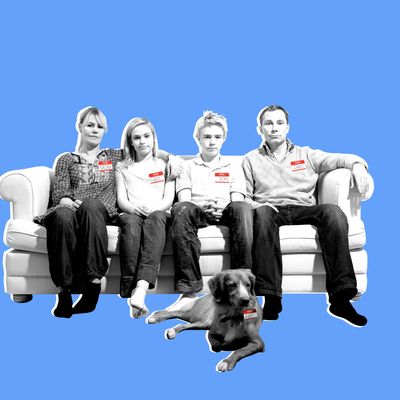
Every so often, my mother, in a mental search for my name, will run through what seems like the entire family tree — she’ll say the names of my brother, her sisters, her parents, our family dog, in rapid succession before finally landing on Cari. Most of these names, it may be worth noting, sound nothing alike; also, the dog has been dead for six years.
It’s a strange little brain tic — you see the face, you know the name, and, somehow, someone else’s comes out — but it’s also a pretty common one. And according to a recent study in the journal Memory and Cognition, it tends to follow its own set of rules, popping up much more often in some situations than in others.
In the first part of the study, a survey of 1,500 college students, roughly half of the participants reported that they’d been called the wrong name by someone they knew, typically a family member. And around 40 percent also said they’d done the same thing, most often to a relative or a friend. The researchers then administered a series of questionnaires to smaller groups of volunteers, asking them to get more specific about these misnaming episodes: Whom were they confused with (or, if they were the ones who’d done the misnaming, who had they confused)? How often did it happen? Did the names sound alike?
Overall, the researchers found, looking like another person wasn’t enough to trigger name-swapping (which, in light of the whole dog thing, was welcome news for me). Phonetic similarities, like Barry to Cari, played a small role, but a much bigger factor was the nature of the relationship between the owner of each name and the person doing the naming. You’re more likely to mix up one friend with another, for example, or call a current partner by an ex’s name, than you are to mix up your uncle and your roommate.
“It’s a cognitive mistake we make, which reveals something about who we consider to be in our group,” study co-author David Rubin, a psychologist at Duke, said in a statement. “It’s not just random.” (Rubin, the authors noted, regularly mixed up the names of his two graduate students.)
The study also included some fodder for the age-old cats-versus-dogs debate: While the pool of participants included roughly equal numbers of cat and dog owners, the data showed that people were much more likely to call a person by a dog’s name than a cat’s. “Given the scarcity of misnaming episodes involving the names of family pets other than dogs, our data suggest that dogs may be a central part of (at least some) families … as human-like members,” the authors wrote, “whereas cats and other pets, although they may be part of the family, are not categorized as ‘human-like.’” Maybe I should take my mom’s confusion as a compliment, then; our family dog, after all, was far and away the favorite child.




